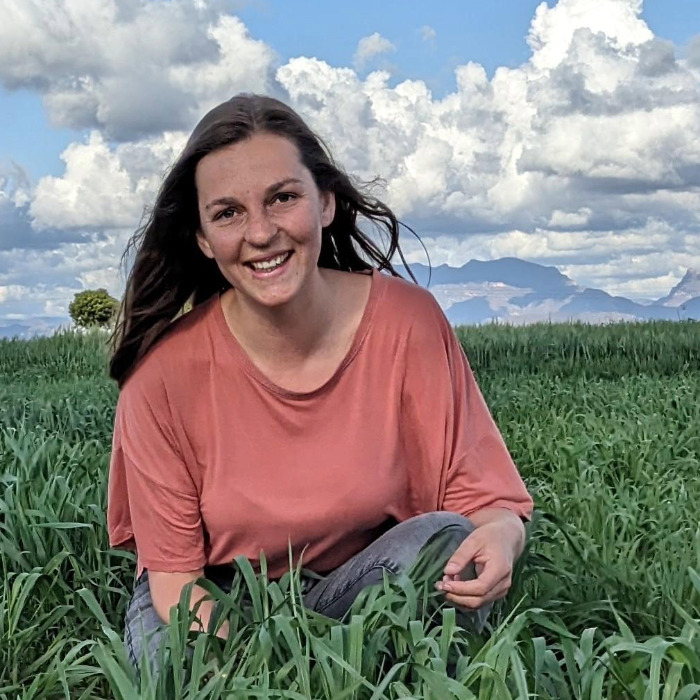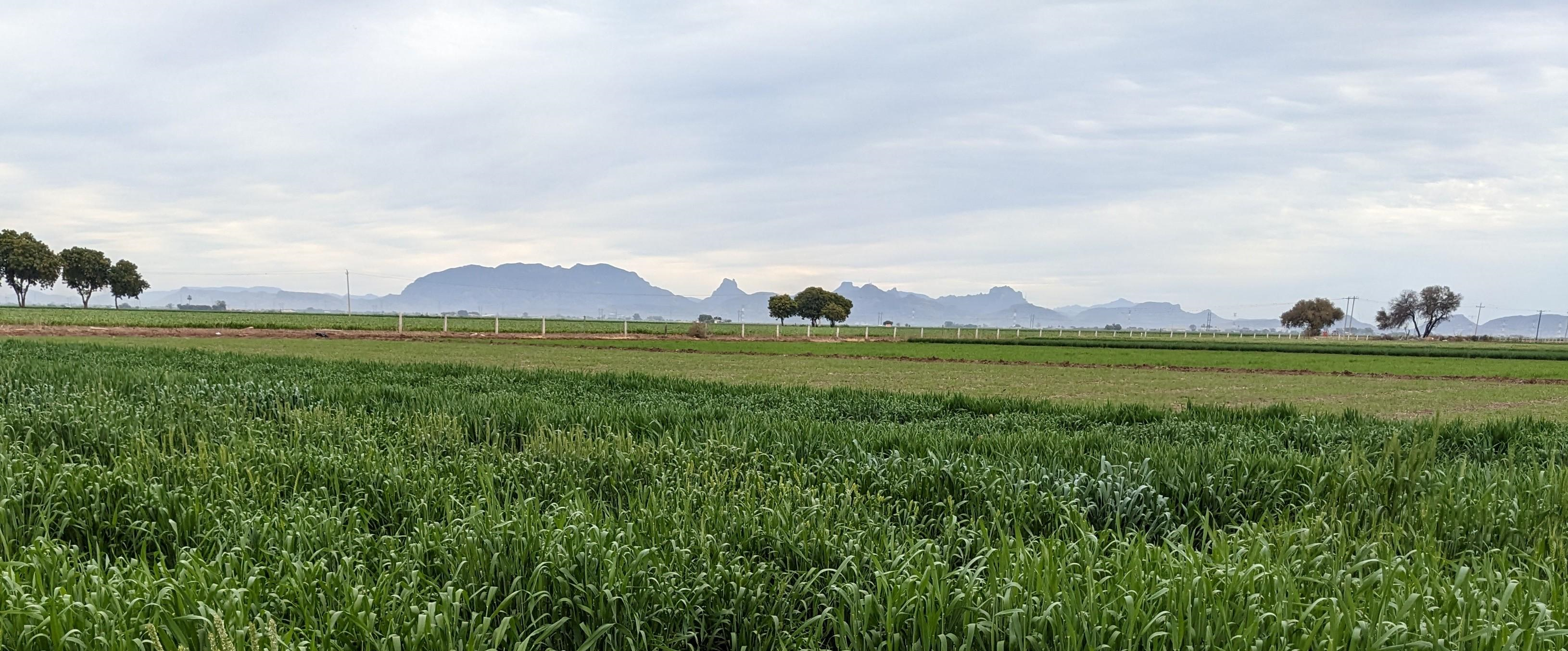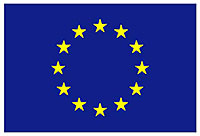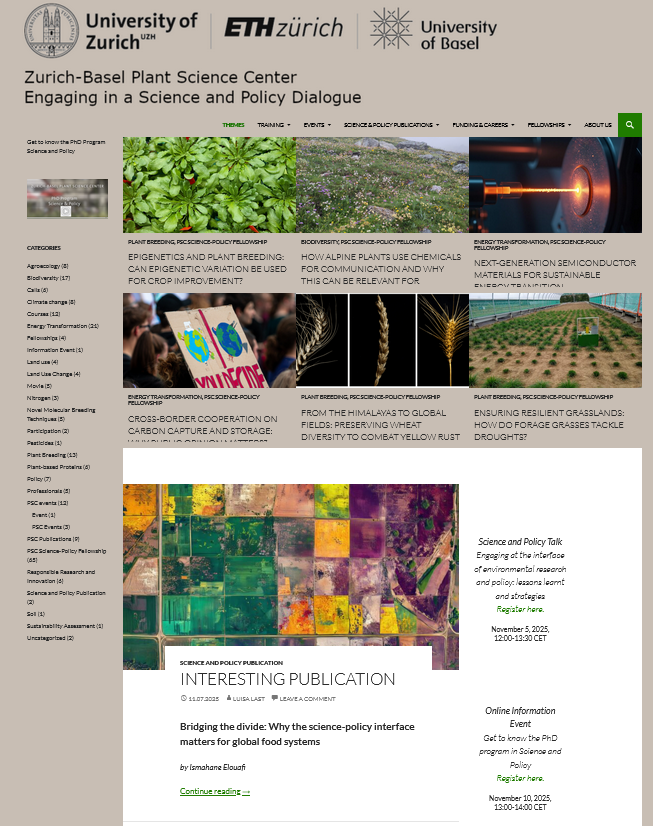Wheat Responses in Changing Climates Studied in Asian Varieties as Underexploited Genetic and Genomic Resources

Fellowship Duration: Apr 2020 - Mar 2024
PhD Student: Katharina Jung (LinkedIn)
Principal Investigator: Prof Kentaro Shimizu, Department of Evolutionary Biology and Environmental Studies, University of Zurich, Switzerland
Project Partner: International Maize and Wheat Improvement Center (CIMMYT)
Research Fields: Plant Science, Quantitative Genetics, Disease Resistance, Drought Tolerance
Project Description
Bread wheat is one of the three major crops in the world, but its yield is projected to be reduced by rapid climate changes. To create sustainable food systems, the critical mission of breeding centers, including the International Maize and Wheat Improvement Center (CIMMYT), is breeding for anticipated climates. The paucity of genomic information, caused by the large genome size and allohexaploidy, has been a major obstacle in the genetic research on bread wheat, but recently the assembly and analysis of the complex genome was accomplished: the 10+ Wheat Genomes Project completed the de novo assembly of ten world-leading varieties. A recent study (Balfourier et al. (2019), Science Advances 5(5): eaav0536) reported that, despite harboring large amounts of ancient genetic variation, Asian landraces and traditional varieties are largely unexploited.
Therefore, this project focuses on the variation of 25 representative lines composed of traditional and modern cultivars from Asia established by the National Bioresource Project – Wheat of Japan. First, by applying the expertise of CIMMYT, the variation of traits that are important for climate changes, such as disease resistances or stress tolerances, was measured within the 25 varieties. Second, novel promising traits were mapped using the nested association mapping (NAM) lines, constructed from the crossing of the 25 core lines, combining the advantages of quantitative trait locus mapping with association mapping. The mapped chromosomal regions could be used for breeding more resistant wheat varieties. The results will be published in open access journals and made available to the general public.
This fellowship is hosted by the Zurich-Basel Plant Science Center.
Activities and Publications
Doctoral thesis Exploring Asian Wheat Diversity: Nested Association Mapping for Abiotic and Biotic Stress Resilience in Bread Wheat
Peer-reviewed article in Springer Nature (2025) on Unveiling yellow rust resistance in the near-Himalayan region: insights from a nested association mapping study including a press release of UZH
Blog article (2025) From the Himalayas to Global Fields: Preserving Wheat Diversity to Combat Yellow Rust
Conference talk and poster at the 3rd International Wheat Congress (Perth, Australia, Sep 2024)
Award: ECR student presentation prize at the 3rd International Wheat Congress from the Wheat Initiative (Perth, Australia, Sep 2024)
Info booth and podium discussion at the Science and Nature festival (UZH, Jun 2024)
BEEES Seminar talk (UZH, Apr 2024)
Public engagement at NACHTAKTIV (PSC, May 2023)
Workshop with participants from the Basic Wheat Improvement Course at CIMMYT (Mar 2023)
Conference poster at the PAG30 (San Diego, USA, Jan 2023)
Conference poster at the PSC PhD Symposium (Zurich, Switzerland, Dec 2022)
Peer-reviewed article in Current Opinion in Plant Biology (Oct 2022) on Polyploidy before and after domestication of crop species
Information booth at the Science and Nature Festival 2024 (Jun 2024)
Public engagement workshop on - Domestikation – Wie entstand unser wichtigstes Grundnahrungsmittel? (UZH, Aug 2022)
Public engagement at NACHTAKTIV (PSC, Oct 2021)
Public engagement at the Climate Garden Workshop “Klimawandel” (PSC, Jun 2021) for the Kantonsschule in Menzingen and the Gymnasium in Thun
Secondment
The collaboration with the International Maize and Wheat Improvement Center (CIMMYT) in Mexico provided the opportunity to carry out large-scale field trials that were essential to this project. The field station's unique environmental conditions allowed for the simulation of drought stress and rust endemics. Access to advanced remote-sensing technologies in Mexico enabled their integration into my trials. The research stay offered invaluable learning experiences, thanks to the support of scientists with extensive expertise and a strong focus on applied breeding. Finally, participating in CIMMYT’s visitor week and leading a workshop for the Wheat Improvement Course expanded my professional network, facilitating connections with breeders and scientists from around the world.
Duration: Mar – May 2022 and Jan - Mar 2023
Stakeholder Workshop
The stakeholder workshop "Untapping the genetic diversity of Asian wheat germplasm for drought tolerance and yellow rust resistance" held as part of the Basic Wheat Improvement Course at CIMMYT (Mar 2023) brought together plant scientists from various National Agricultural Research Systems (NARS) in Kenya, Ethiopia, Morocco, Mexico, Bangladesh, Pakistan, Nepal, and India. A central feature of the workshop was the presentation and discussion of my research project on wheat improvement, highlighting the identification of new yellow rust resistance genes and drought-tolerant lines. This was complemented by a field visit showcasing experimental plots under both optimal and drought-stressed conditions. The diverse expertise of the participants facilitated a rich exchange of ideas, aligning the research focus with the practical needs and expectations of farmers in various regions. The event underscored the importance of international collaboration in breeding new CIMMYT wheat varieties and provided valuable insights into addressing region-specific agricultural challenges. The workshop took place at the Training Center and field site at CIMMYT’s experimental field station CENEB (Campo Experimental Norma E. Borlaug) in Ciudad Obregón, Mexico.



